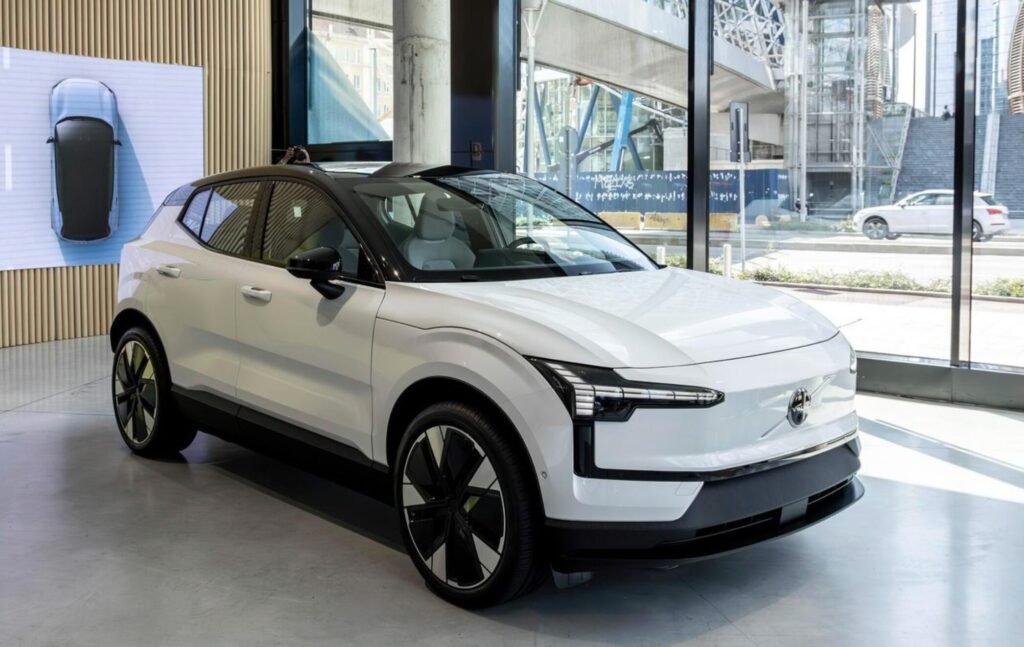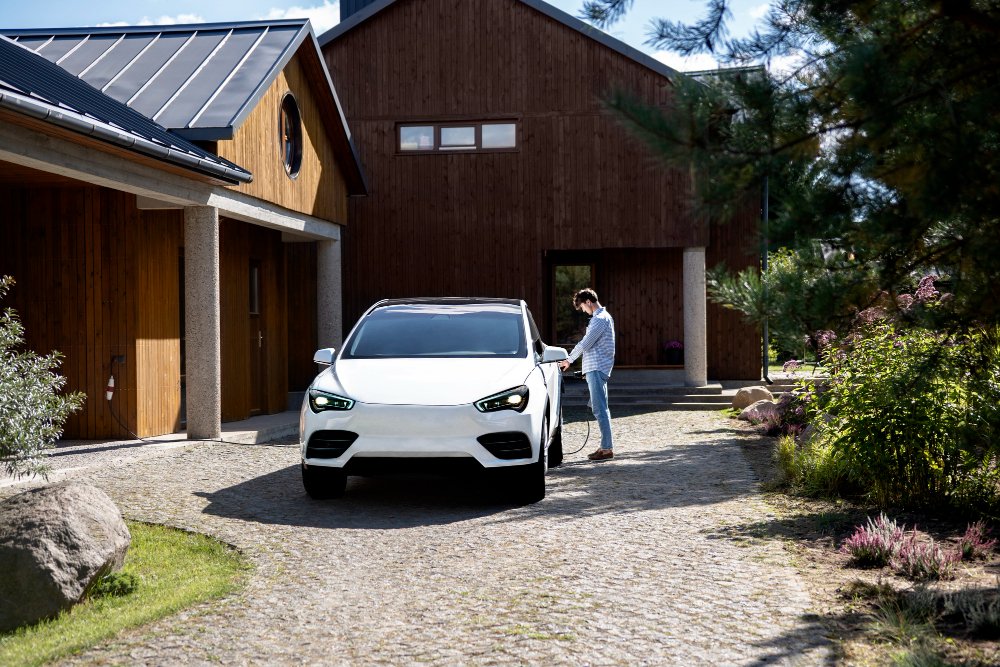Volvo has long been recognized for its dedication to safety, minimalist Scandinavian design, and sustainability. With the rapid global shift toward electrification, the company has committed to becoming a fully electric car brand by 2030. In this blog post, we’ll explore the rise of the Volvo electric car, what sets it apart, the benefits and challenges, real-world examples, and what to expect from the brand in the coming years.
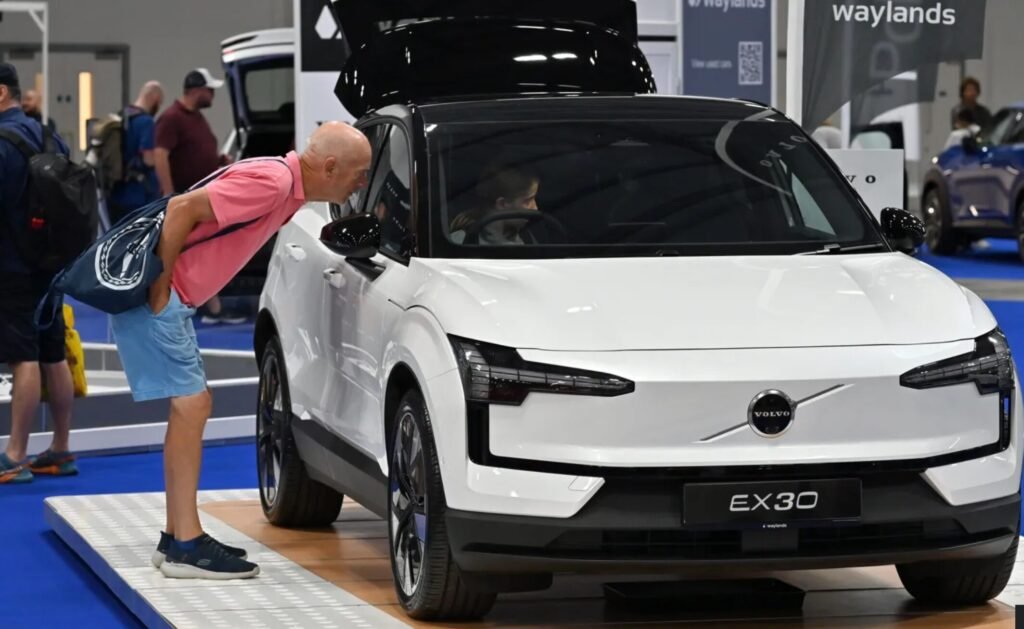
What Is a Volvo Electric Car?
A Volvo electric car is a fully electric vehicle (EV) designed and manufactured by Volvo Cars, the Swedish automaker renowned for its safety innovations. Unlike hybrid or plug-in hybrid vehicles, Volvo’s new generation of EVs run solely on electric power and produce zero tailpipe emissions. This move aligns with Volvo’s larger climate plan to reduce its lifecycle carbon footprint.
Volvo’s electric car lineup includes models built on its Compact Modular Architecture (CMA) and the new Scalable Product Architecture (SPA2), optimized for electric mobility.
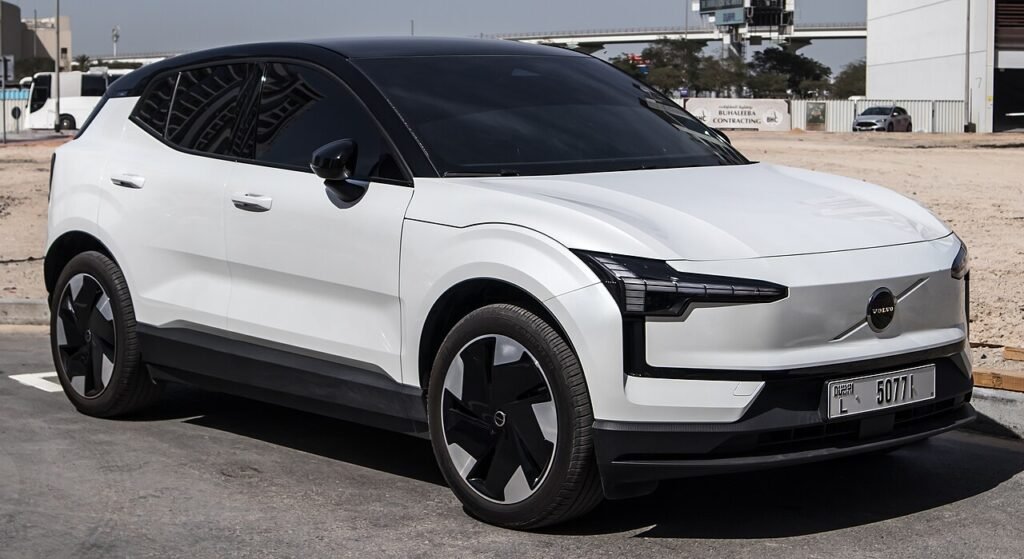
Some notable Volvo electric models include:
- Volvo EX30 (compact SUV)
- Volvo XC40 Recharge
- Volvo C40 Recharge
- Upcoming EX90 (luxury electric SUV)
Key Benefits of Volvo Electric Cars
1. Industry-Leading Safety
Safety is in Volvo’s DNA. The brand carries over its renowned safety standards to its EVs. The electric architecture allows new safety tech like lidar-based crash prevention, 360° camera systems, and improved driver assistance systems.
2. Minimalist Design with Scandinavian Elegance
Volvo electric cars maintain the brand’s clean, elegant design language. From the aerodynamic C40 Recharge to the stylish EX30, every EV reflects a fusion of functionality and beauty.
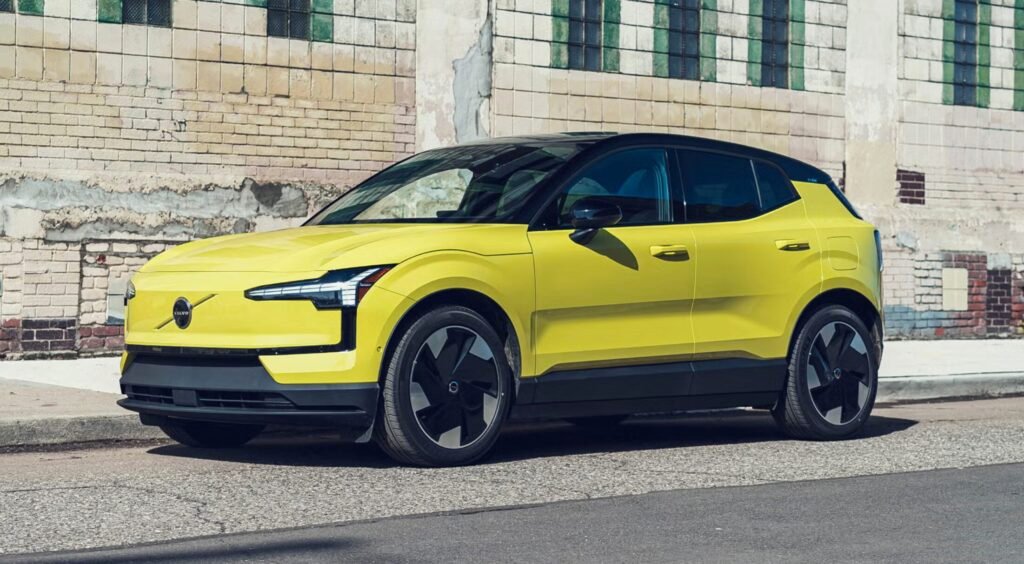
3. Zero Emissions Driving
Fully electric means zero emissions while driving. Volvo EVs help reduce urban air pollution and greenhouse gases, supporting both local clean air goals and global climate targets.
4. Google Built-In
All modern Volvo EVs come with Google apps and services built in, including Google Maps, Google Assistant, and Google Play, offering seamless digital integration.
5. Over-the-Air (OTA) Updates
Volvo electric cars stay updated through OTA software upgrades—no dealership visit required. This feature improves vehicle performance, adds new features, and enhances safety over time.
Challenges and Limitations
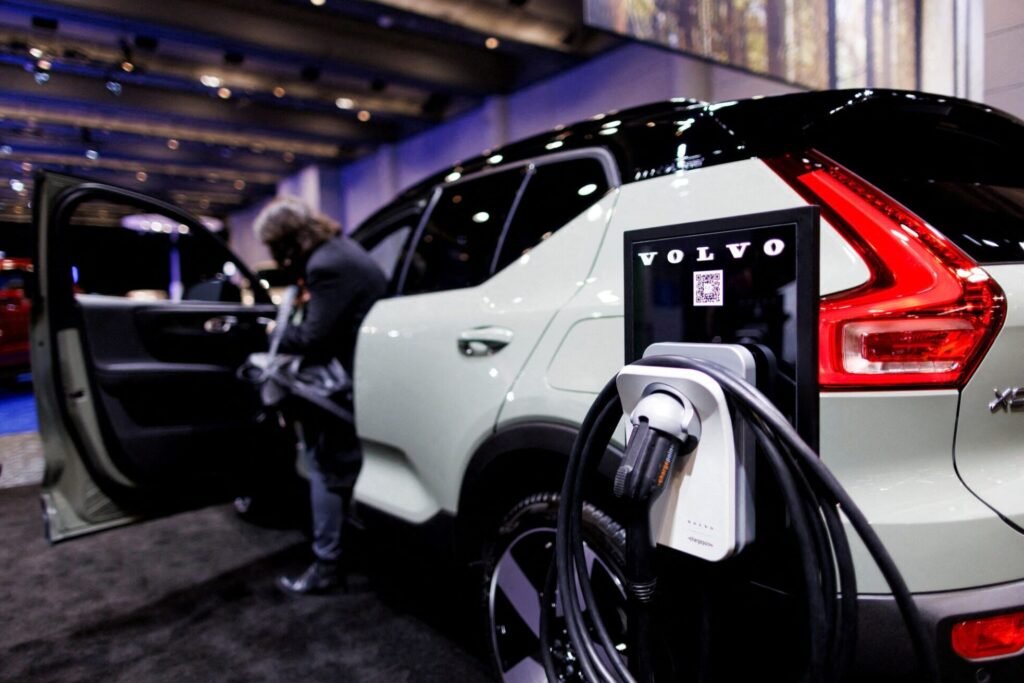
1. Charging Infrastructure
While Volvo is expanding partnerships with public charging networks, fast charging availability can still be limited in some regions.
2. Pricing
Volvo EVs come with a premium price tag. The EX30 aims to be more accessible, but the C40 Recharge and EX90 may be costly for budget-conscious buyers.
3. Range Anxiety
Although Volvo EVs offer competitive range (up to ~300 miles), range anxiety can persist for drivers new to electric mobility, especially in colder climates.
4. Limited Lineup (for now)
Compared to competitors like Tesla, Volvo’s current electric lineup is relatively small. However, new models are in development and planned for release before 2030.
Real-World Examples of Volvo Electric Cars in Action
Volvo XC40 Recharge
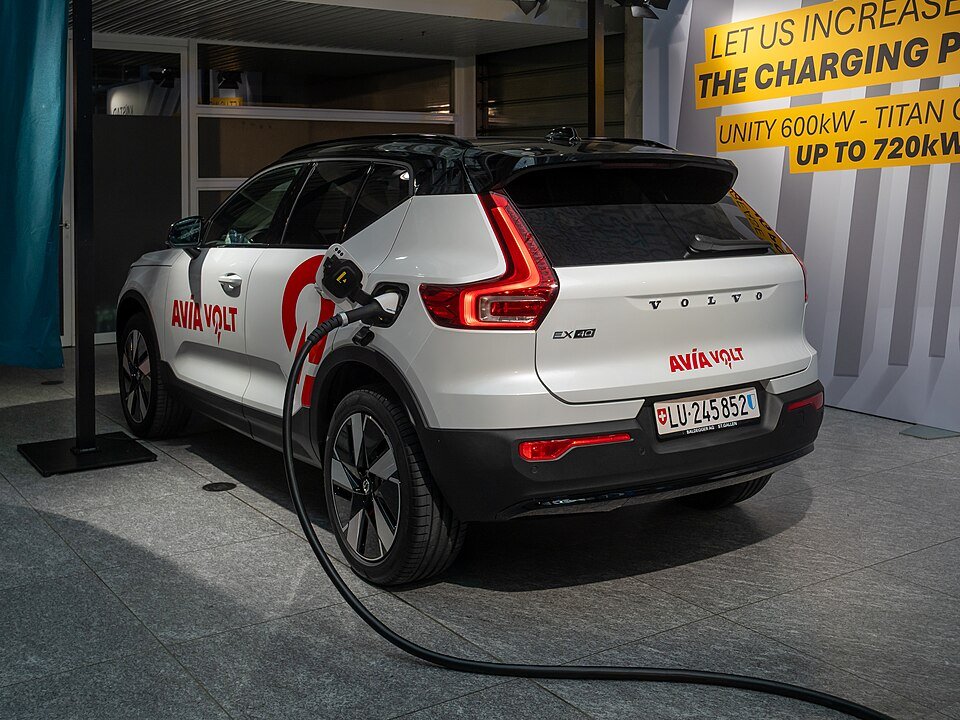
Launched in 2020, the XC40 Recharge is Volvo’s first all-electric vehicle. It offers dual-motor all-wheel drive, 402 hp, and a range of around 223 miles. Customers have praised its responsive handling and upscale interior.
Volvo C40 Recharge
The C40 Recharge is Volvo’s first model designed purely as an EV. With a sleek fastback silhouette, it combines aesthetic appeal with sustainability. It includes a vegan interior and a panoramic roof.
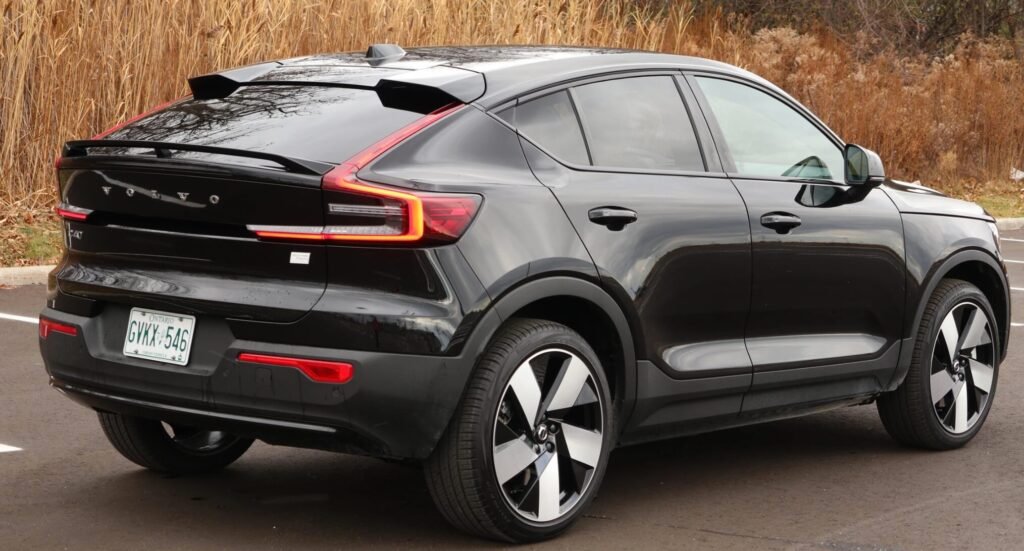
Volvo EX30
This 2025 compact SUV aims to be Volvo’s most affordable EV. Despite its price point, it doesn’t compromise on performance or safety, offering 0–60 mph in 3.4 seconds (Performance variant).
Future Trends: What’s Next for Volvo Electric Cars?
1. 100% Electric by 2030
Volvo plans to become a fully electric car company by 2030. Every model launched after 2025 will be electric only.
2. Battery Recycling and Second Life
Volvo is investing in circular battery solutions, including recycling and second-life energy storage applications.
3. Improved Range and Charging Speed
Future Volvo electric cars will benefit from faster charging speeds and longer ranges, thanks to new battery technologies and charging partnerships.
4. Autonomous Capabilities
With its partnership with NVIDIA and sensor company Luminar, Volvo aims to introduce advanced autonomous driving tech in its next-gen EVs, starting with the EX90.
FAQ – Volvo Electric Cars
What is the range of Volvo electric cars?
Volvo EVs offer a range between 200 to 300+ miles depending on the model. The EX30 Performance version aims to exceed 275 miles per charge.
How do I charge a Volvo electric car?
You can charge Volvo EVs at home using a Level 2 charger or on the go via DC fast charging stations. Google Maps integration helps locate nearby chargers.
Are Volvo electric cars expensive to maintain?
Generally, electric vehicles like those from Volvo require less maintenance than gas cars—no oil changes, fewer moving parts, and fewer mechanical failures.
Is Volvo still making gas-powered cars?
Volvo has announced it will stop producing internal combustion engine cars by 2030. From then on, the brand will offer only electric vehicles.
Which Volvo EV is best for families?
The upcoming EX90 is ideal for families—it’s a 7-seat luxury SUV with advanced safety, comfort features, and long-range capability.
Conclusion
The Volvo electric car lineup represents a thoughtful blend of luxury, safety, and sustainability. As Volvo commits to an all-electric future, the company is paving the way for premium EV ownership that doesn’t compromise on performance or purpose. Whether you’re seeking a compact urban EV like the EX30 or a family-friendly powerhouse like the EX90, Volvo’s electric offerings continue to impress.
– Ready to experience the future of driving? Explore Volvo EVs and make the switch to clean mobility today.

